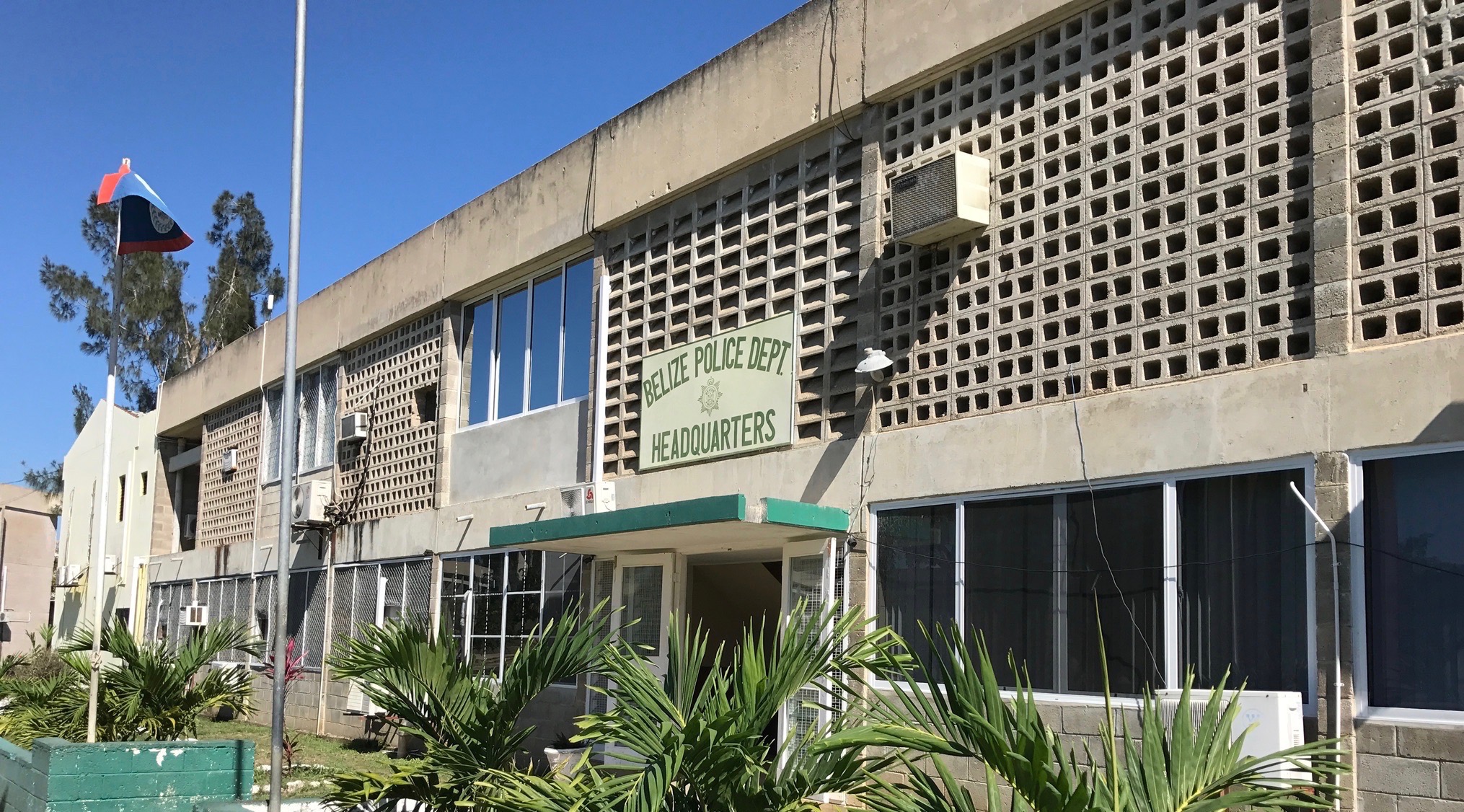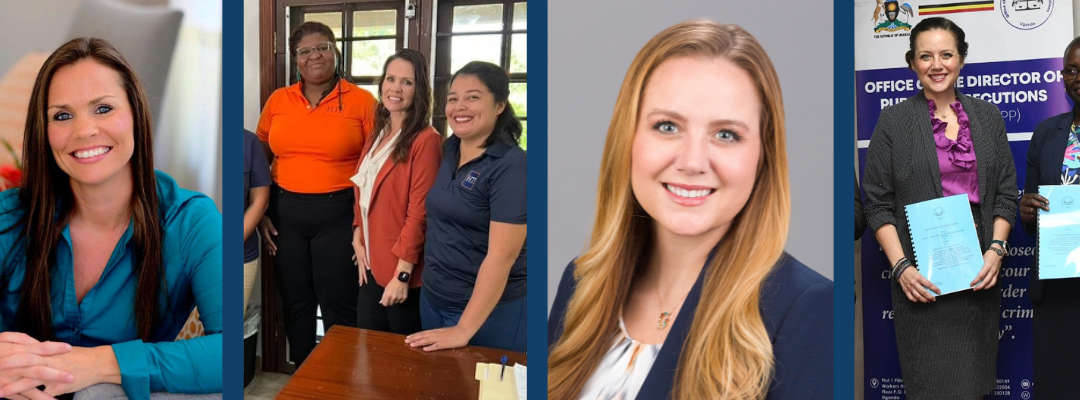Yesterday morning, the U.S. Department of State released its annual Trafficking in Persons (TIP) Report, which ranks 187 countries on how well they are combatting human trafficking. Countries that receive the lowest ranking are subject to economic sanctions from the United States. This year, Belize received an improved Tier 2 Watch List ranking after receiving the lowest ranking for four consecutive years.
“I am very gratified this happened under my command of the police department,” said Belize Commissioner of Police Chester Williams. “Since I took command, my office has done a lot in terms of addressing human trafficking. We have increased the number of personnel working in the human trafficking office. We are in direct communication with the Human Trafficking Institute. We are currently working on a new office space for the human trafficking personnel to be relocated. The new space will have secure, private interview rooms where persons who are victims of human trafficking will be able to be interviewed without others hearing the nature of the interviews. We have mounted a number of operations. We have a number of investigations going on, and so it shows that with the good work we have been doing in conjunction with human services and the immigration department, it’s not only police, it’s a multi-agency approach.”
The TIP Report described a number of achievements by the Government of Belize during the reporting period that resulted in its improved ranking. They include initiating two new prosecutions for the first time in four years; designating a Supreme Court Justice and a Magistrate Judge to provide specialized attention to human trafficking cases; and dedicating five officers full-time to a specialized anti-trafficking police unit.
“We are encouraged by the efforts made by the Government of Belize during the last year to improve implementation of their anti-trafficking laws and the subsequent recognition by the U.S. Department of State. Those efforts should have a very positive impact as they work to hold more traffickers accountable and provide relief for victims of trafficking,” said Dave Rogers, Institute Director of Law Enforcement Operations.
The U.S. Department of State ranks each country in its annual report into one of four tiers (Tier 1, Tier 2, Tier 2 Watch, Tier 3), as mandated by the Trafficking Victims Protection Act (TVPA). This placement is based on the extent of a government’s efforts to meet the TVPA’s minimum standards for the elimination of human trafficking. These minimum standards include enacting anti-trafficking laws with strong criminal penalties, implementing those laws through proactive identification of victims and vigorous prosecution, and providing care and services to victims.
“We worked very hard to try and implement many of the measures the Human Trafficking Institute suggested,” said Hon. Michael Peyrefitte, Belize Attorney General. “We appointed a special judge to hear human trafficking cases in the Supreme Court, a special magistrate, a special prosecutor, a crown counsel in the Attorney General’s Ministry, and then a special human trafficking unit within the police department. I would really like to thank the Human Trafficking Institute and the Ministry of Human Development, who have done a fantastic job in ensuring that the victims are cared for, protected, and coached, so that they can be ready mentally to testify in court, when those days come. It’s been a big team effort, and I’m glad to see that the work that we have put in is being rewarded.”
The Human Trafficking Institute formally began working with the Government of Belize in 2017. During the last two years, the Institute has hosted a delegation of Belizean Cabinet members and other senior officials in Washington, D.C., where they met with high-level U.S. counterparts on human trafficking at the U.S. Department of Justice, FBI, U.S. Department of State, and other government agencies. The delegation formed recommendations to improve Belize’s capacity to respond to human trafficking cases that were presented to and adopted by the Belizean Cabinet. The Institute then partnered with the U.S. Department of Homeland Security to train Belizean criminal justice practitioners on anti-trafficking interviewing techniques. At the request of the Chief Justice of Belize, the Institute also hosted a large training on human trafficking cases for Belize’s judiciary, and the Chief Justice agreed to designate a Supreme Court Justice and Magistrate judge to focus on trafficking cases.
“The Government of Belize has taken some important steps forward in equipping its criminal justice professionals with the specialized skills necessary to enforce its anti-trafficking laws,” said Victor Boutros, Institute CEO.
In October of 2018, the Institute conducted a Global Human Trafficking Academy in which specialized police – including members of the newly formed specialized anti-trafficking police unit – prosecutors, and victim specialists from Belize engaged in two weeks of intensive, skills-based training and learned cutting-edge strategies for handling human trafficking cases.
The Chief Justice and the Institute also partnered together to create a new Judicial Assistant position to work directly with the designated Supreme Court Justice to further support the Belize judiciary and how it handles human trafficking cases. Cherisse Francis, an internationally-trained lawyer from Barbados, was hired to fill that role, and in January 2019, began working directly with Supreme Court Justice Antoinette Moore.
“Since the beginning of our work in Belize we have met many officials committed to combating human trafficking in their country, and it has been exciting to witness the steps the Government of Belize has taken over the last two years to improve enforcement of their anti-trafficking laws,” said Dave Fillingame, Institute Special Counsel in Belize, who is based in Belmopan. “Change is happening, and it’s great to see Belize being recognized for the progress they have made. The steps Belize has taken already are laying the groundwork to have an even more significant impact in the years to come. This year, we will likely see the first human trafficking cases going to trial in over three years.”
In addition to highlighting some of Belize’s “key achievements,” the TIP report also noted areas for improvement. In further explaining the Tier 2 Watch ranking, the TIP report noted that “despite these achievements, the government did not investigate or prosecute any public officials for complicity in trafficking-related offenses” and “did not convict any traffickers for the third consecutive reporting period.”
The Government of Belize is taking steps to address some of these issues. This year, the Belize Police Department and the Human Trafficking Institute entered into an agreement to partner in building the capacity of Belize’s specialized anti-trafficking police unit. The agreement ensures the specialized unit operates out of a secure location, has access to essential tools and resources required to stop traffickers and free victims, and receives ongoing technical investigative assistance in human trafficking cases from the Institute. In addition, the judiciary of Belize entered into an agreement to partner with the Institute to increase its capacity to prioritize and efficiently process human trafficking cases. There are now cases set for trial that could result in the first conviction sentencing a trafficker to jail time under Belize’s current anti-trafficking law.




